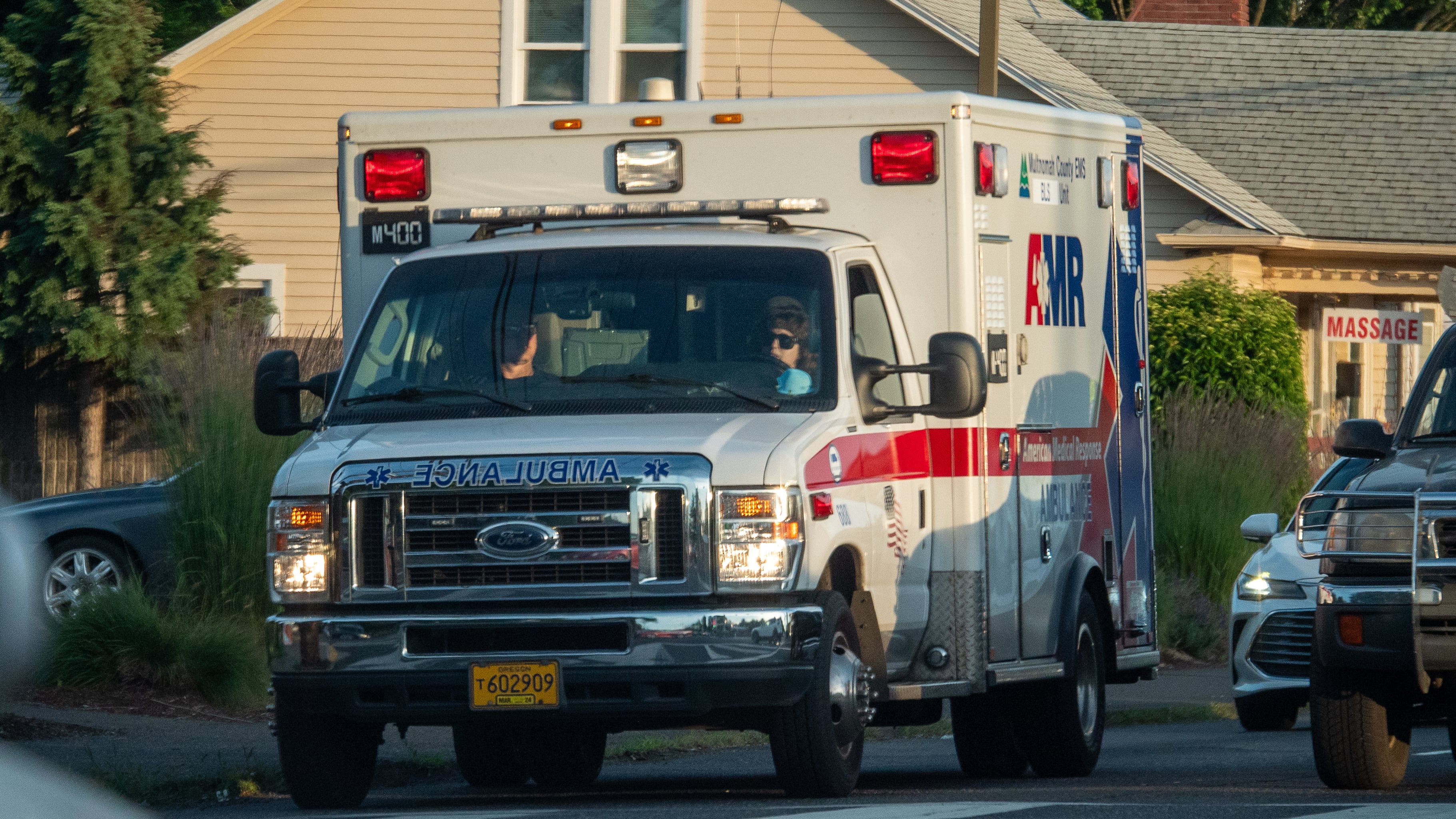A Multnomah County official managing emergency medical service has told the Teamsters he’s recommending the county begin fining its ambulance contractor for slow response times. This afternoon, WW obtained a copy of that email.
For more than a year, the county’s ambulance contractor, American Medical Response, has been failing to meet on-time performance standards set in its contract. Often, ambulances simply aren’t available when people call for help. Despite this, the county has declined to fine AMR, leading Multnomah County Chair Jessica Vega Pederson to order a review of the decision following WW reporting on the extent of the crisis.
The county has reviewed its options and is leaning toward “issuing new liquidated damages for excessive response times,” according to the email sent by Aaron Monnig, the health officer operations manager for county EMS, to Austin DePaolo, business representative for Teamsters Local 223, which represents AMR’s paramedics and emergency medical technicians.
In the email, Monnig recommends the county penalize AMR to “enforce the financial incentive” to meet performance standards, Monnig explains. The county previously rejected this idea when it considered it last October, to avoid “financially crippling the vendor.”
He also recommends the county stick with its current two-paramedic-per-ambulance policy, which is unique among regional counties but is necessary, Monnig argues, because Multnomah County is “fundamentally different” in that a city fire bureau paramedic does not also respond to every call.
AMR says this policy is contributing to the crisis because it can’t find enough paramedics to staff all of its ambulances. But the contractor took on new work with neighboring Washington County this year, irking Multnomah County officials.
AMR has also been unable or unwilling to hire more EMTs, who have less training and can perform fewer medical procedures than paramedics. It needs them to staff a new county pilot that sends “basic life support” ambulances to low-acuity calls. Monnig recommends the county require “AMR to deploy the BLS resource that they have failed to do so far.”
In the long term, Monnig recommends the county fund a “a systemwide planning effort” to explore alternatives when AMR’s contract expires in 2028.
Other options weighed by Monnig but ultimately rejected include finding AMR in breach of its contract, allowing the city fire bureau to provide medical transport services, and contracting with an additional ambulance provider alongside AMR.
“What is clear is there is no single option that resolves the issue and also does not have negative operational, fiscal, and clinical impacts to other EMS entities including the county,” Monnig writes.
One of those negative impacts will be to “financially destabilize” AMR, which is expected to pass on any fines in the form of “increased rates which will ultimately be passed on to the community,” Monnig explains.
The recommendations reflect “roughly what we are thinking,” Monnig writes, but are not finalized. They are expected to eventually be presented to Multnomah County commissioners.

